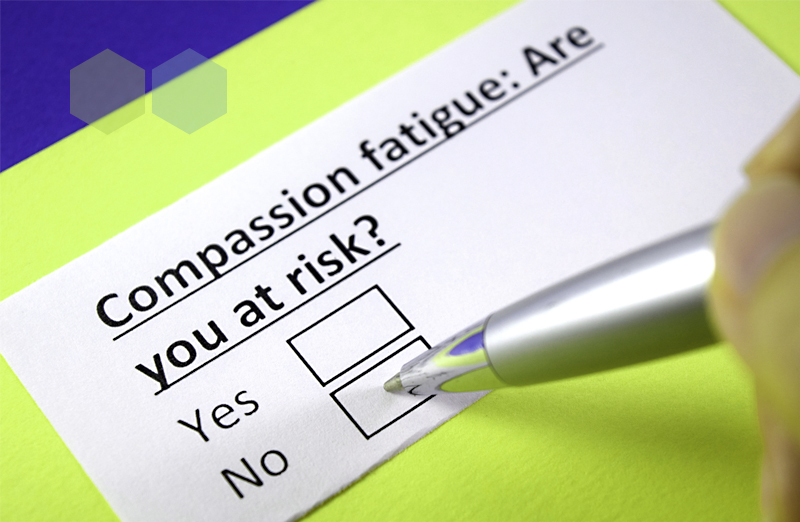“Compassion asks us to go where it hurts, to enter into places of pain, to share in brokenness, fear, confusion and anguish. Compassion challenges us to cry out with those in misery, to mourn with those who are lonely, to weep with those in tears. Compassion requires us to be weak with the weak, vulnerable with the vulnerable and powerless with the powerless. Compassion means full immersion into the condition of being human.” — McNeill, Morrison and Nouwen, 1982
Imagine dragging yourself into an Emergency Room at a Southwest Ohio hospital for what turns out to be a life-threatening infection. A supervising doctor sees you. He reacts with disgust. He tells you the hospital doesn’t need another addict taking up bed space. He offers you oral opioids if you will just “get out of my ER.”
This scenario truly did happen, and Faith, now a Maryhaven patient in recovery, still aches when describing the experience.
However, please don’t misunderstand or overgeneralize. Most medical professionals display genuine concern and provide great care to those suffering with substance abuse disorders. The “get out” sentiment can be found or not found in any setting—and with anyone.
That said, some professionals see the bad and ugly of addiction in horrific ways and more frequently than most of us could ever imagine. First responders and front-line health care professionals who deal with the worst-case addiction disorder scenarios can struggle with very emotional, trying circumstances.
My niece who was a CPD officer told me that she had to hold her nose and her tongue when cleaning up the backseat of her cruiser. A physically and mentally ill patient had an accident when being transported and while she felt bad for the patient, she didn’t enjoy the aftermath.
Worse was the story told by a City of Columbus paramedic who looked like a lineman for the Cleveland Browns. A father, he choked up describing how it felt to find a toddler hysterically crying next to the bathtub where her mom had overdosed.
Or I can still hear the rage in the voice of the ER nurse who worked valiantly and under great stress to resuscitate a patient, only to see that same patient shooting up heroin in the parking lot a half hour later.
These are the same confusing cascade of emotions and sense of betrayal that came to mind for a certain group of school Board members when they discovered their superintendent stole senior prom donations to cover his casino losses. (This former superintendent is now in long-term recovery from gambling addiction).
What all of these people expressed is called compassion fatigue. We apply the phrase to caregivers who are physically and emotionally affected by someone else’s pain. It also applies someone who is acutely conscious of the major challenges faced by people around them, but is so overwhelmed, paralyzed or frustrated by the consequences of those decisions that he or she no longer feels empathetic.
Often called secondary traumatic stress and burn out, compassion fatigue sums up when we tire of being continually exposed to other people’s pain—especially when that pain could be perceived as self-inflicted and/or unnecessary.
“Most often… [it] can be thought of as an emotional exhaustion that manifests as the reduced ability of a caregiver or responder to engage in empathy and/or compassion for the survivor they are working with,” says Leia Saltzman, a researcher with the Tulane Traumatology Institute, part of the Tulane University School of Social Work. Her executive director, Charles Figley, originally coined the phrase “compassion fatigue” when working with returning Vietnam veterans.
Perhaps humans don’t necessarily choose to not “engage in empathy” any more than an addicted person chooses his or her addictive behaviors. It may be more accurate to say that we default to “I just can’t care anymore.” Perhaps compassion fatigue serves as our brain’s self-defense against an overload of suffering, much like the fight-or-flight functions of our amygdala kept us alive when we were easy prey for tigers.
Maria Garner, who provides gambling and trauma counseling to clients at Maryhaven, shares this viewpoint. “When you see so much trauma, it can be numbing,” she explains. “It’s just the way the brain works to try and protect us from the impact of so much turmoil and pain. Sometimes, people are simply judgmental. More often, though, they’ve just seen too much.”
It’s not just professionals who can find themselves running on the fumes left in the wake of anger and betrayal. Loved ones, friends, neighbors—anyone in relationship with someone who suffers from an abuse disorder—can easily resort to an attitude of “I just can’t care anymore.” To a certain degree, this attitude can be helpful for brief periods of time as it allows for more objective thinking and decreases the chances of our enabling a person to stay addicted.
But, in the long run, the sharp-eyed criticism and judgmentalism arising from compassion fatigue keep us trapped in our own stew of negative emotions.
Maria offers this advice: “Professionals and family members have to know themselves well enough, know the signs of compassion fatigue, and when they start seeing it, step back and take a break. The key is self-care. Take self-care very seriously. Don’t bring work home. Spend time with friends and family who uplift you. Exercise, eat healthy, sleep well. An athlete makes sure to stay healthy in body, mind and spirit. In the same way, people who work or live with those in trauma need to do something for themselves every day to be sure you’re ready to help others.”
Talk to professionals like Maria. Take long walks, meditate, pray, do whatever helps you restore your sense of peace and balance. Most importantly, practice forgiveness. Life is more fulfilling when we find ways to keep people IN our heart.
